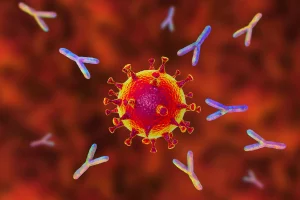Seamless disease
detection and
monitoring
We have been operating for over 10 years;
At biologix, we make modern molecular testing easy by providing a means to ensure disease detection and monitoring is seamless.
Our Health Plans and Packages
To view our comprehensive health plans and packages, Kindly click the link below
What We Do
Reliable and High-Quality Laboratory Services
Testing
Testing for Patients, Employment, Travel or Personal Use
We've got you covered
Our accurate and efficient real time test results are delivered promptly, and are acceptable by hospitals (govt and private), laboratories, employers, airlines and countries.
- Book an appointment date/time
- Select preferred test (e.g. Covid-19 PCR and/or RDT, HPV)
- Proceed to fill the form
- Select payment option

Why choose Biologix?

A rich and diverse variety of tests
We provide a wide variety of comprehensive molecular testing services to medical centres, HMOs, individual and research institutions needed for diagnosis, disease monitoring and treatment.

Accessible and Affordable
We specialize in molecular testing that are accessible and affordable without compromising quality.

Efficient and Seamless Service
We cater to the needs of our clients in a seamless and efficient manner in an optimal laboratory setting delivering stellar service with prompt accurate results.

Certified and Approved
We are accredited and approved by the Health Facility Monitoring & Accreditation Agency (HEFAMAA) and Medical Laboratory Science Council of Nigeria (MLSCN). We are in partnership with the Lagos State Government and are a member of the Lagos State Biobank COVID-19 Consortium.
We are passionate and goal-oriented with expertise in cell and molecular biology
Biologix employs molecular diagnostics as an advanced, fundamental method of diagnostics and testing due to its precision and efficiency. Molecular testing gives a deeper insight into causes of diseases and how they can be resolved or managed better while detecting details that would have escaped detection on non-molecular levels.
Testing
Get access to to state-of-the-art molecular and pathology testing with ensured accuracy for diagnostics
View All →
Human Papillovirus
Hepatitis B
- DNA Profiling
- Human Identification
- HLA typing
Diabetes
Frequently Asked Questions
Our facility is accredited and approved by NCDC, HEFAMAA and MLSCN for COVID-19 testing.
We are also a member of the Lagos State Biobank COVID-19 laboratories consortium.
You can book an appointment ahead for the test, but can also walk in without an appointment to get tested.
Turnaround time is within 24-48 hours.
Laboratory tests are among the most common and important tools of modern medicine. Results from clinical laboratory tests contribute to most healthcare decisions. They provide information about your health status and risk factors and can be used to determine a diagnosis, guide therapy, and estimate outlook (prognosis). Many of the decisions you and your healthcare provider make about your care are based on the results of laboratory tests.
Most urine samples are collected by urinating into a clean container provided by the lab. One to two ounces of urine is typically needed for testing, and a sufficient sample is required for accurate results. Urine samples usually can be collected at any time, but a first-morning be requested because it is more concentrated and more likely to detect abnormalities.
Typically, “routine blood testing” or “routine lab work” refers to panels of tests that measure several analytes to check your general health status. Two of the most common are a comprehensive metabolic panel (CMP), which measures 14 analytes to check the health of organs such as your liver and kidneys, and a Full blood count (FBC), which evaluates your blood cells to check for conditions like anemia or infections. Other, more specific types of panels can be used as a routine check of the health of your liver, thyroid, or kidneys.
Blood tests cannot definitively tell whether a person has cancer. However, some blood cancers may be detected if there are abnormal findings on a Full blood count (CBC). Additional tests, such as a bone marrow biopsy, are performed to confirm the diagnosis. For other types of cancers, your healthcare provider may order testing if it is suspected that you have cancer. Typically, other procedures, such as a physical exam, imaging tests, and a biopsy, are necessary to help make a diagnosis.
A blood test may provide clues to health problems, like heart or kidney conditions. However, initial test results that are abnormal are usually followed by additional testing that can help make a definitive diagnosis. Additionally, other tests may be performed to determine the cause of the condition so that it may be treated appropriately.
Screening tests are laboratory tests that can help detect a disease even before a person develops symptoms, usually in the earliest and most treatable stages. Screening tests are also used to help to identify people who have an increased risk for a condition so that preventive measures can be taken. Examples of these tests include cholesterol testing for heart disease risk, HIV testing, and Pap smears for cervical cancer.
A diagnostic test may be used for screening purposes, but a diagnostic test is generally used to confirm a diagnosis in a person who has signs, symptoms, or other evidence of a particular disease, condition, or risk.
Most tests do not require any special preparation. Others, however, may require you to fast or avoid specific foods or take other steps in advance of the test. Always carefully follow any instructions you are provided.


















